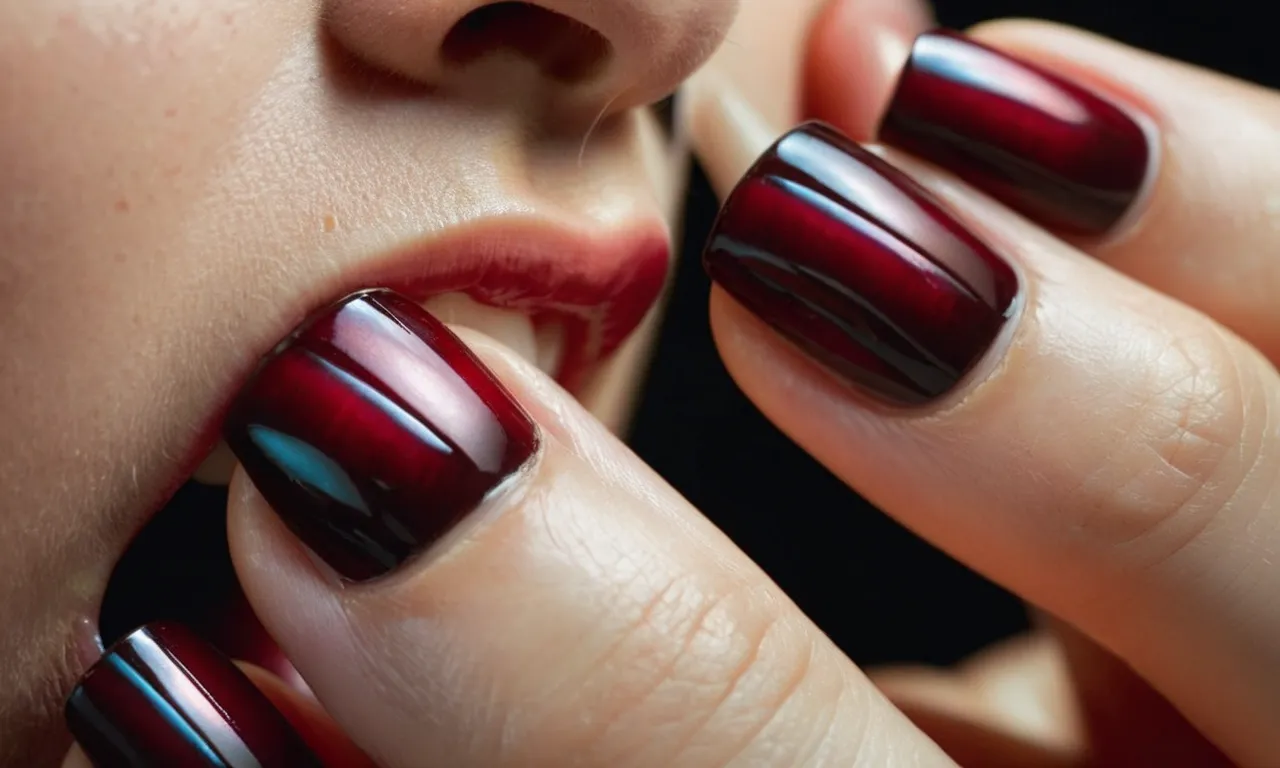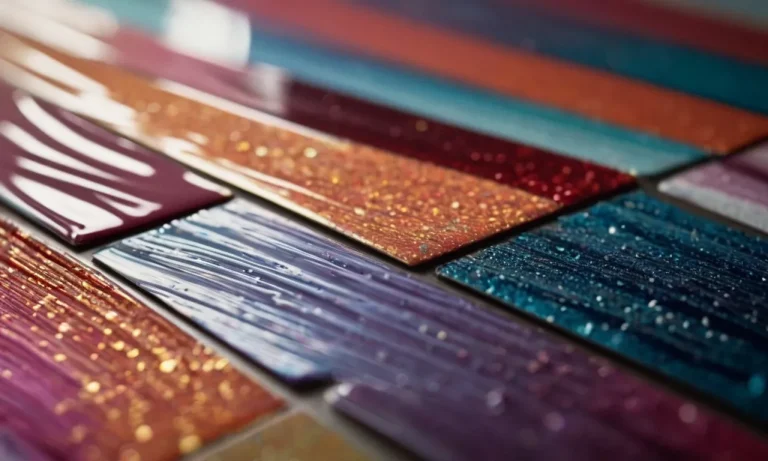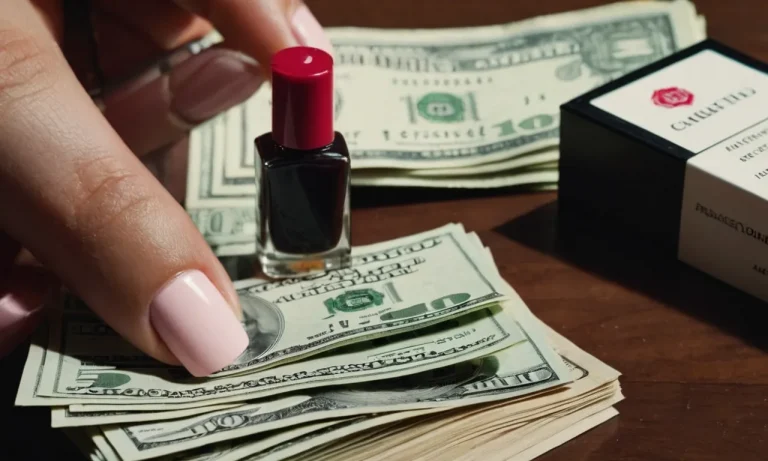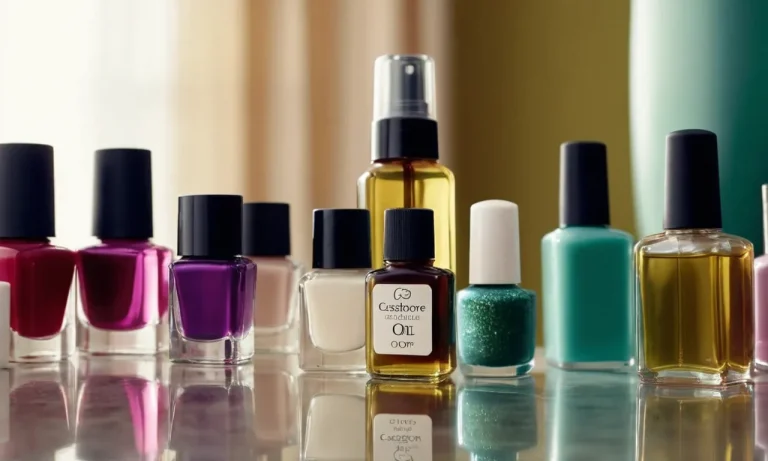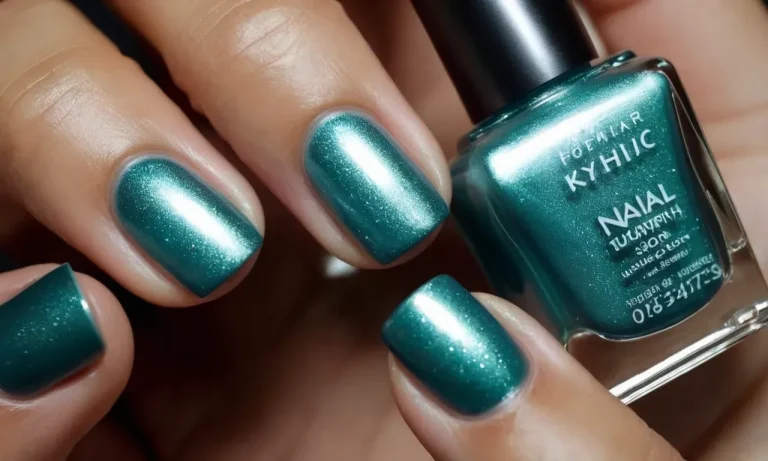Chipped Tooth From Biting Nails: Causes, Treatment And Prevention
Nail biting is a common habit that can lead to a variety of dental issues, including chipped and cracked teeth. If you’ve noticed a small chip on your tooth from biting your nails, you’re probably looking for answers on what to do next.
If you’re short on time, here’s a quick answer to your question: The best treatment for a chipped tooth from nail biting is to schedule a dental appointment as soon as possible to have the tooth smoothed and sealed to prevent further damage.
Preventing further nail biting and using a mouthguard or tooth guard can also help avoid additional chips.
What Causes Chipped Teeth from Nail Biting?
Excessive Force and Pressure on Teeth
Nail biting applies immense pressure on the teeth. Studies show that the average bite force is around 172 pounds per square inch. When you chomp down on your nails, fingernails, or cuticles, you can easily generate over 250 pounds per square inch of force.
This extreme pressure can chip, crack, or break the enamel on your teeth.
Additionally, bringing a hard nail across the edges of your front teeth essentially files them down. The shear frictional grinding slowly weakens your enamel over time. This abrasion causes microscopic cracks that can lead to chips and fractures from everyday chewing.
Brittle Teeth Prone to Chipping
Many chronic nail biters have overall poor dental hygiene. Lack of proper brushing, flossing, and professional cleanings causes tooth decay and enamel erosion. This damage leaves teeth brittle and predisposed to chipping and cracking from small impacts.
Other factors like gastroesophageal reflux disease can also wear down enamel. The acid reflux slowly dissolves the protective outer coating on teeth. Cases of bulimia, which exposes teeth to corrosive stomach acid, show how erosion intricately links to chipping.
Thus various dental issues make teeth vulnerable to fracture from habitual nail biting.
Treating a Chipped Tooth from Nail Biting
See a Dentist ASAP
If you chip a tooth from biting your nails, it’s important to see your dentist as soon as possible. A chipped tooth is more vulnerable to further damage and decay, so getting prompt treatment can help prevent more extensive repairs later on.
During your dental appointment, the dentist will examine the chip and recommend the best restoration method. Leaving a chipped tooth untreated can lead to pain, infection, and tooth loss down the road. Don’t put off that dental visit!
Tooth Smoothing and Sealing
For minor chips, the dentist may be able to smooth the rough edge using a dental drill or sanding tool. This evens out the surface and gets rid of any sharp areas that could cut your tongue. The dentist may also apply a sealant to the chipped area to prevent bacteria from getting inside the tooth.
Sealing off the exposed dentin provides an extra layer of protection. This quick and non-invasive treatment can keep your chipped tooth intact until it fully repairs with natural tooth regeneration.
Dental Bonding
Bonding is a common restorative solution for small-to-medium chips. The dentist first roughens the damaged area and applies a conditioning liquid to prep the tooth. Then, a tooth-colored composite resin material is applied and shaped to match the natural tooth.
The resin is hardened using a special dental light. The dentist sculpts and polishes the resin until it blends seamlessly with the surrounding tooth structure. Bonding restores the tooth’s shape, integrity, and aesthetic appearance in just one office visit.
Dental Veneers
For more significant chips or fractures, veneers offer a porcelain restoration that covers the entire front surface of the tooth. The dentist will prepare the tooth by lightly shaving down the damaged area to allow room for the veneer to be placed.
An impression is taken and the custom-made shell veneer is fabricated in a dental lab. At a follow-up visit, the veneer is bonded onto the tooth’s front surface with adhesive resin cement. Veneers provide a natural-looking, damage-resistant solution for severely chipped teeth.
Preventing Further Chipping from Nail Biting
Use a Mouthguard or Night Guard
Wearing a mouthguard or night guard can help prevent further tooth chipping from nail biting. The guard acts as a protective barrier between your teeth and nails. It’s important to get one custom-fitted by your dentist for the best protection and comfort.
Some options include soft plastic guards that mold to your teeth or hard, acrylic devices.
Studies show mouthguards reduce the force from nail biting by up to 50%! This significantly decreases the risk of additional chipping or fractures. Using a guard whenever you feel the urge to bite will safeguard your pearly whites.
Address the Nail Biting Habit
Getting to the root cause of why you bite your nails can help minimize the habit. Common reasons include stress, anxiety, boredom, or oral fixation. Identifying your triggers is key. You can then find healthier alternatives when the urge strikes, like squeezing a stress ball or chewing gum.
Cognitive behavioral therapy may also help kick the habit for good.
Additionally, regular nail trimming keeps them short so there’s less to bite. Try a bitter nail polish as a deterrent. Reward yourself for progress with fun manicures. Enlist friends and family to hold you accountable. With diligence and commitment, you can nip nail biting for good!
Practice Good Oral Hygiene
Proper oral care protects your teeth from further damage. Brush twice a day with a soft-bristle toothbrush. Use a fluoride toothpaste to strengthen enamel. Floss daily to remove plaque from between teeth. This prevents tooth decay and gum disease that weaken tooth structure.
Also, see your dentist every 6 months for cleanings and checkups. They can spot early signs of chipping and recommend treatments. Apply bonding agents to rough edges or fillings to cracks to prevent chips from worsening.
Avoid hard, chewy, or crunchy foods that can crack teeth. Opt for softer nutritious choices like smoothies, yogurt, eggs, and steamed vegetables. Stay hydrated and limit acidic drinks like soda that erode enamel.
By being proactive with at-home care and professional dental visits, you can keep your pearly whites intact despite the past damage from nail biting.
Conclusion
In summary, chipped teeth are a common consequence of long-term nail biting habits. Seeking prompt dental treatment and taking steps to curb nail biting can help restore your smile and prevent additional damage.
With some patience and dental work, your chipped tooth can be repaired for a flawless look.

